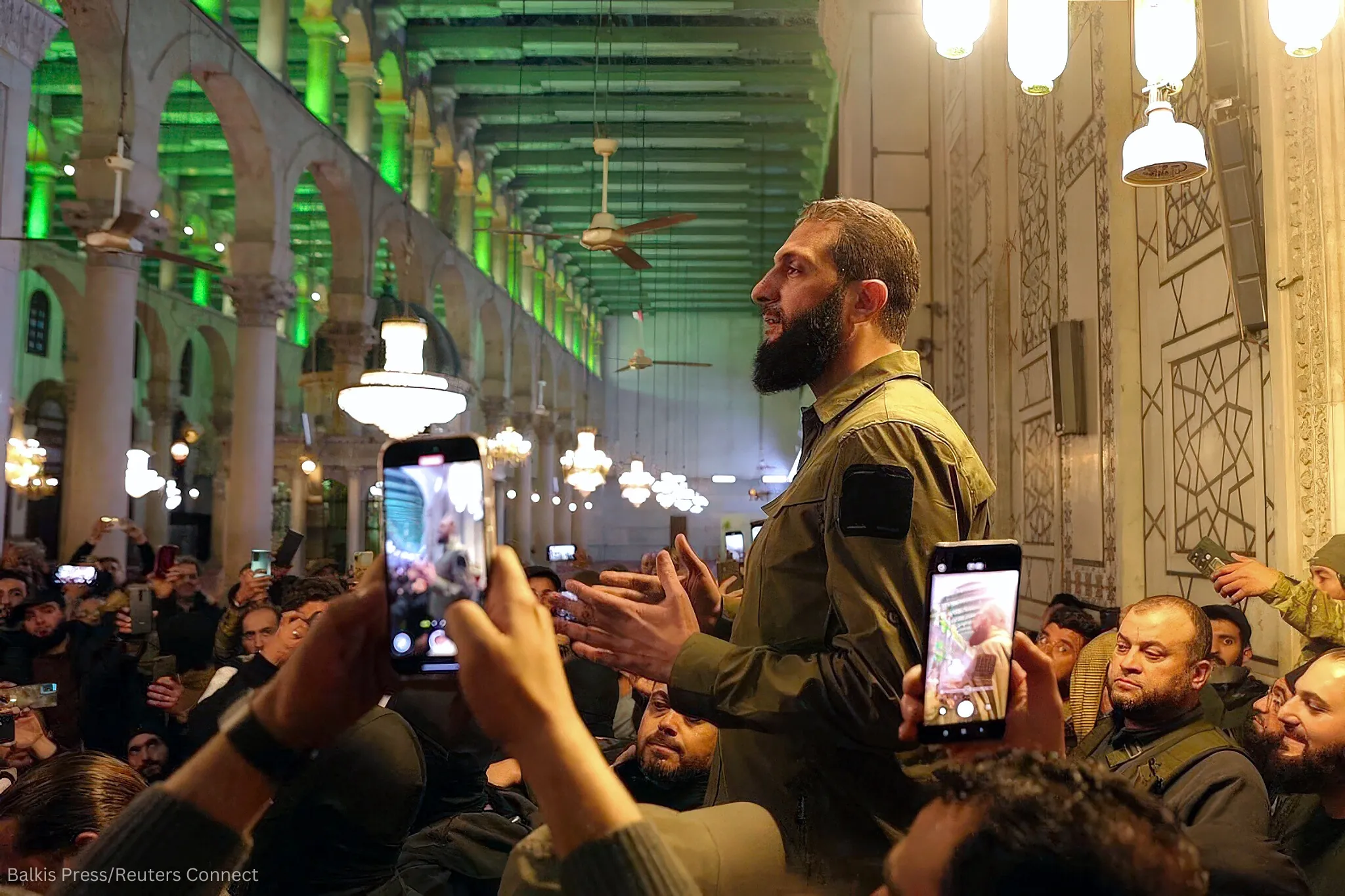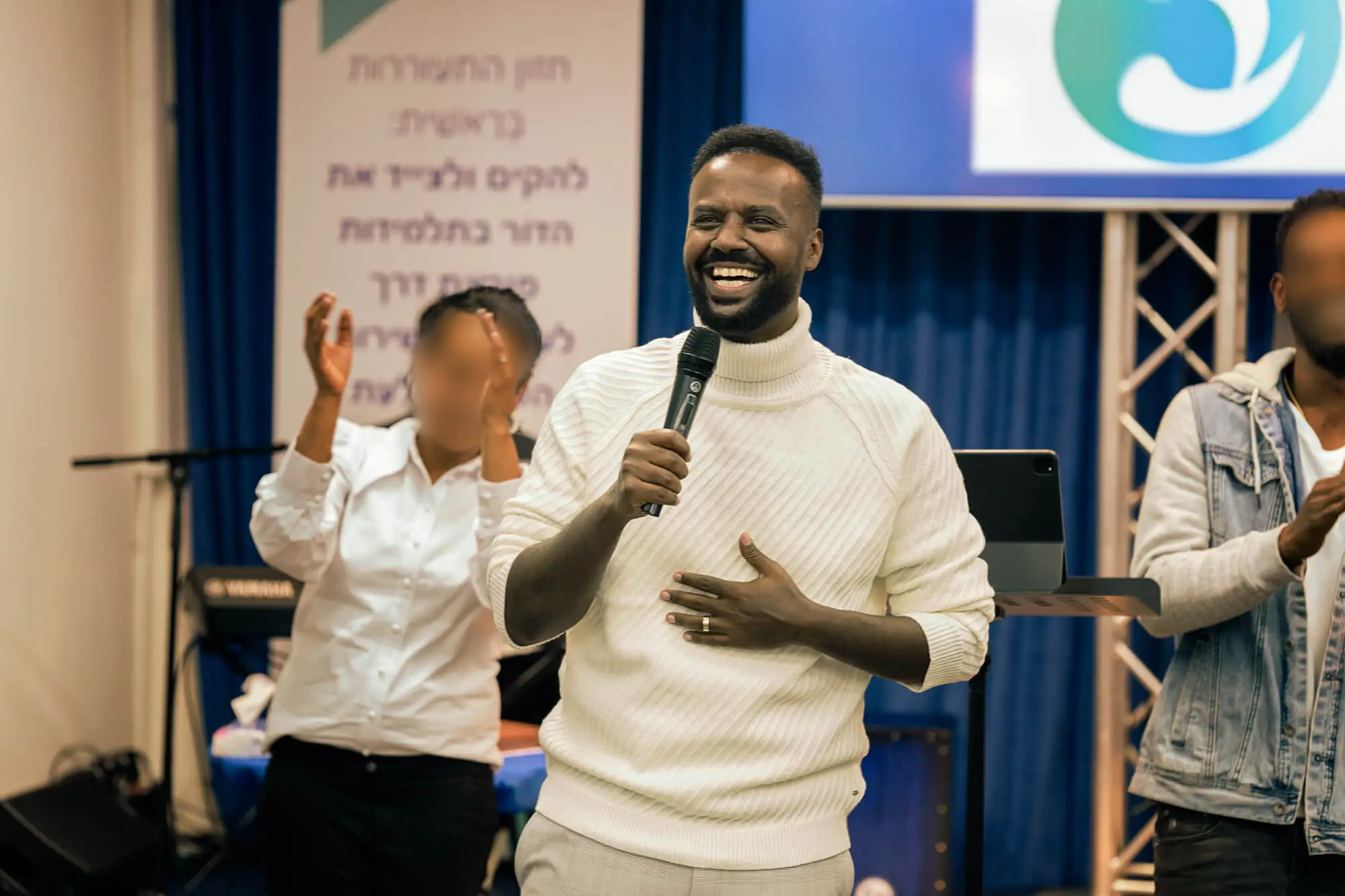
They are less than three years into the plant, but it’s being called one of the fastest growing congregations in Israel—though their unimpressive “main sanctuary” holds less than 50 people. The majority of the growth is very much under the radar with a network of home groups popping up in towns and cities across central Israel. It’s hard to know how Joseph (not his real name), the lawyer-turned-pastor we wrote about last spring, manages to keep up with all the young leaders he’s raising up. But somehow, he manages to make everyone who links arms with him feel like a close family member. The neatest part about this young Hebrew-speaking congregation is that the growth is not from those migrating from other congregations. Most of the congregants were brought to the Lord by Joseph himself, or by the ones he brought to the Lord and then raised up to do the same. I’d give you details with numbers and places, but the more I tell you, the more I’m exposing to the organizations that exist with the stated purpose of irradicating Yeshua from Israel.
Kobi and Joseph first connected just before COVID hit. Joseph was sharing about his vision to plant the first Hebrew-speaking Ethiopian congregation in the country. “It is time,” he said. “My people immigrated decades ago from Ethiopia and many of us know Hebrew better than Amharic—some of us don’t know Amharic at all. We need a congregation that will address the needs of the younger Ethiopians who have spent most or all their lives as Israelis.”
Despite the restrictions and lockdowns, Joseph’s congregation steadily grew from nothing to several dozen in the first year.
Since helping fledgling ideas grow into mature works in Israel is one of Maoz’ passions, we knew we wanted to get involved in seeing this new congregation succeed. The more we observed how Joseph was training and discipling his people, the more we could see he was a leader who non-Ethiopian Israelis would be blessed to sit under as well. “Are you wanting to plant a congregation for Ethiopian Israelis, or do you want to plant a congregation for Israelis?” we finally asked him. He smiled, “When I laid out the vision for this congregation, I wrote that I wanted it to be a congregation for all 12 tribes of Israel!”
Our family has made this congregation our home base. Interestingly enough, though the services have a distinct Ethiopian flare, every week we see non-Ethiopians gravitating to what can best be described as a very spiritually refreshing experience. The congregation is made up of mostly young adults and young families. Kobi and I, being in our 40’s, are often the oldest people in the room!
Joseph’s gifts as both a bold evangelist and an attentive pastor would be a unique combination anywhere—let alone Israel. For sure there are few leaders who would know how to help mentor this gift-combo from a place of experience. So, the other day, I sat down with Joseph to get a peek into his early experiences and what he feels Christians from around the world would benefit from knowing about reaching Israel with the Gospel.

Do you remember the first time you shared about Yeshua with someone?
“I do! The first time I witnessed to someone I was a teenager and had just recently received Yeshua. I came from a very traditional Jewish family with a strong Jewish identity. Understanding how Yeshua was a part of the Jewish story was so exciting to me, I knew I wanted to tell someone but I didn’t know who to pick. Then one day I got in a cab with an Arab taxi driver. I barely knew how to explain what I had to say in Hebrew since spiritual concepts include words that are not common in everyday conversations. I was full of passion and boldness and was hanging over the front seat as I fired all the information I had at him.
“The cab driver seemed fascinated by me. I don’t know if he was more stunned that a Jew was talking about Yeshua or that a teenager was talking to him with such passion about his life.
“I left the cab feeling on top of the world. I had done it! I had shared about Yeshua. I had given my testimony. I’m sure in my excitement I mixed up some things, but the core of my message was clear—Yeshua was the way to our Father God. He forgives sins and I knew Him personally.
“Talking to my family was a different story. Coming from a very conservative, traditional, and sometimes ultra-Orthodox Jewish extended family, I expected their responses to be harsh. I wasn’t wrong. They would look me in the eyes and rebuke me. Israel is a very tribal culture and being ostracized by one person can mean being ostracized by their entire circle of friends and family. Therefore, as a teen, experiencing such rejection from my extended family was difficult for me.”

Was there a point where you realized witnessing was more than just telling people about Yeshua?
“Though I was excited to tell people about Yeshua, I quickly learned that how I lived my life affected people more than how well I presented my beliefs in words. Israelis are rarely impressed with anything. We live in a difficult country and life is hard. Perhaps because of that they take notice when people around them are in a good place. When I was in the army I was asked over and over, “What is this peace that we feel in you?” Clever phrases would have little impact if people saw me lose my temper or cheat on a test the day before. On the other hand, simple words—or even no words at all—spoke volumes when people watched me walking in the ways of the Lord (even if they didn’t know to call it that).
“When I studied in a high school Yeshiva (religious Jewish school) my fellow students complained to the head principal regarding my talking about Yeshua. I was so nervous about being called in, but because I was such a model student, nothing ever came of it.
“In college the same thing happened. My own roommate complained to the dorm supervisor that I was holding Bible studies in my room. We were friends but in that area he wouldn’t compromise. When I was brought in to meet with the head supervisor, I explained that what I was doing was completely within my rights as an Israeli in a democratic nation. He knew I was the guy who studied hard, helped others and won the “cleanest dorm room” contests. So, after we met, the supervisor brought the dorm guys together and told them they should all be like me. Though he just meant for them to act like me, no one could deny that my beliefs and my behavior went hand in hand.”
There are many ways to witness.What ways have you found to be least effective in Israel?
“I don’t think there’s a perfect way to witness. I also wouldn’t take it on myself to declare certain ways of witnessing as “bad”—but there are definitely less effective methods in different cultures.
“First, anywhere we go, I believe we should understand the culture and people around us before we take it upon ourselves to represent the message of the Gospel. For example, if a woman goes into an ultra-Orthodox synagogue—she shouldn’t expect them to listen to a single word she has to say—as they are not allowed to speak to women. Or, if I were to stand on a street corner in Israel with a sign and start yelling out my message, the only response I would expect to receive is jeering and maybe even a few rocks thrown my way.
“Culturally, cold-turkey witnessing doesn’t really work here for several reasons. One is that Jews have a strong sense of identity that is tied to their history. Telling them to believe differently than their parents—and ancestors—is like asking them to switch planets in their mind. Another reason is that historically there’s just so much bad blood between Jews and those who claim to be the followers of Yeshua; there are simply other important conversations that need to be had before you can even approach the subject.”
You’ve lived in Israel for decades—most of your life—you’ve surely seen many international groups come to Israel, some with a strong desire to witness to Jews. What are your thoughts on those efforts?
“I’ll begin by saying I believe internationals come to our country with good intentions. I believe they are good people who love the Lord. But as Jewish believers in Israel we spend a good bit of time clearing up confusion created by visitors with good intentions and no cultural understanding. There are also all sorts of cultural nuances and language barriers we encounter when Israelis hear the Gospel in English for the first time instead of Hebrew.
“One of the more basic issues that comes up is that Christians will come and tell Jews they should convert to Christianity. There’s just nothing in the Bible that says in order for Jews to believe in Yeshua they have to stop being Jewish. It’s the opposite actually—the apostles had to clarify to the Gentiles that they didn’t have to become Jewish in order to believe in Yeshua. They had to clarify this because, at the time, belief in Yeshua was recognized as a Jewish-only belief. So we have to spend time explaining to them that following Yeshua doesn’t mean abandoning the heritage of their ancestors.”

What would you tell Christians who come to Israel and want to share their love for Yeshua with Israelis?
“If someone just wants to check the feel-good box of ‘I witnessed in Israel’ then they can do what they want. But if Christians want to see long-term fruit of mature disciples in Israel, I recommend two things. First, take time and learn about Israel, its culture, and its history.
“I don’t want to discourage visitors from befriending Israelis and being open about what they believe—after all, God will always have the last word on how He wants to reach Israelis. But it’s important to understand there are thousands of years of the complex relationship between God and the Jewish people laid out in countless pages of Bible verses and another couple thousand years of the complex relationship between the Gentile Church and the Jews after the final pages of the New Testament were written. You can’t just step into that dynamic and blurt out what you have to say—even if you feel it is from the Lord—and expect all that to disappear.
“This leads me to my second recommendation which is to make every effort to team up with mature local Israeli believers who can take the reins once you have returned home. Bringing someone to the Lord is like having a spiritual baby. You don’t have a baby without a plan of how to care for it after it’s born—you know it cannot fend for itself. Going to a foreign country and
bringing someone to the Lord and then leaving without finding someone who can care for them is just as irresponsible. But if you’re in relationship with Israeli believers who are set up to care for new believers then your impact will be long term—and you may even be able to return to the land years later and enjoy fellowship with the person you brought right up to the gates of heaven.”
Seeing where Joseph’s congregation was a year ago when we first wrote about him and where he is today is evidence of the favor of God on his work. The main sanctuary is packed, the youngest kids learn their Shabbat lessons on the kitchen floor, older kids learn outside on the patio and the teenagers have taken over Joseph’s tiny office space. These are good problems to have. We will work through the growing pains together. Surely, the intensity with which those he disciples seek God cannot go unnoticed by the throne of God and we look forward to see what this mustard seed will look like a generation from now.
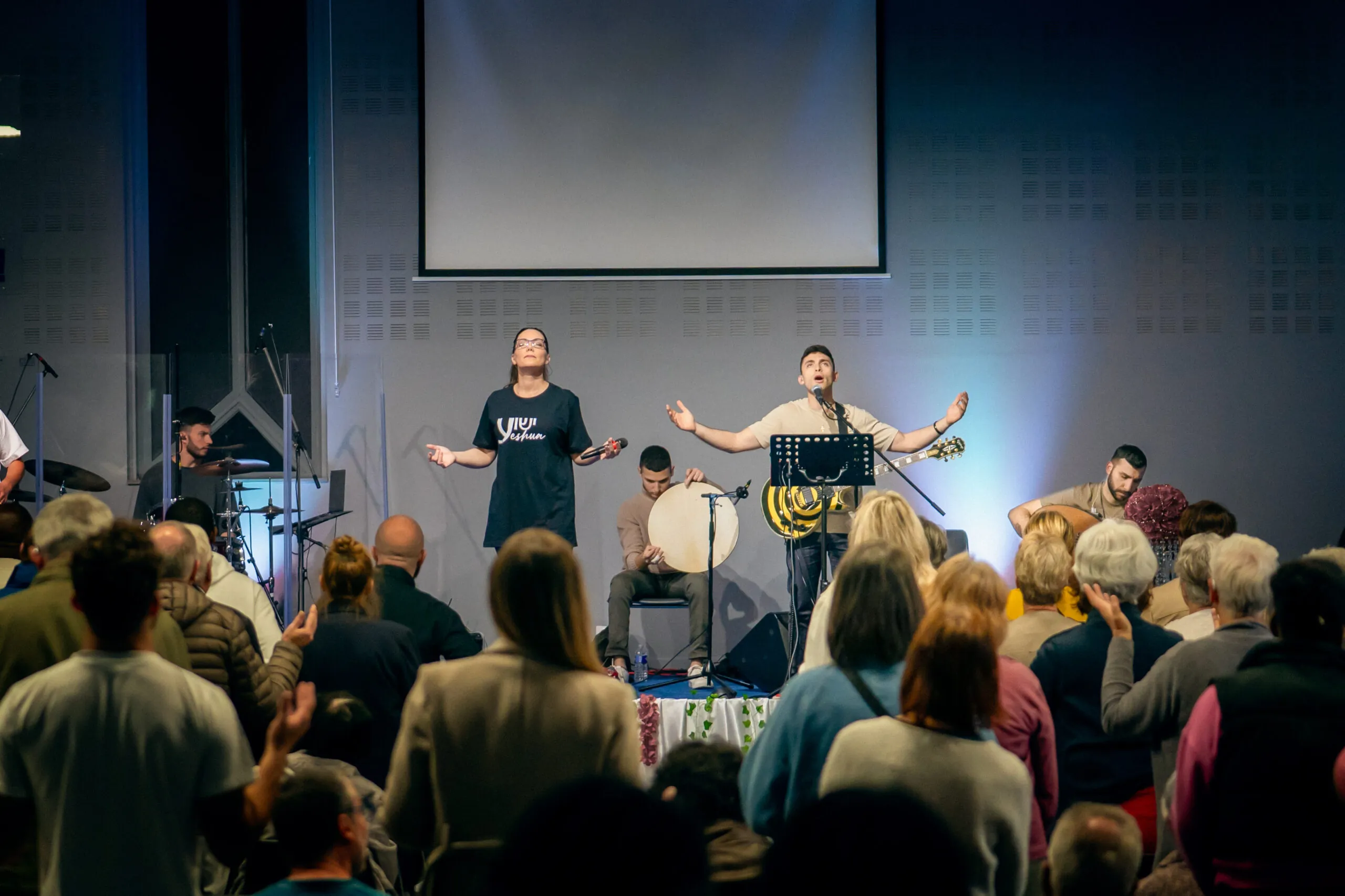
Israel and Ishmael Tour Mission

No Child Left Behind
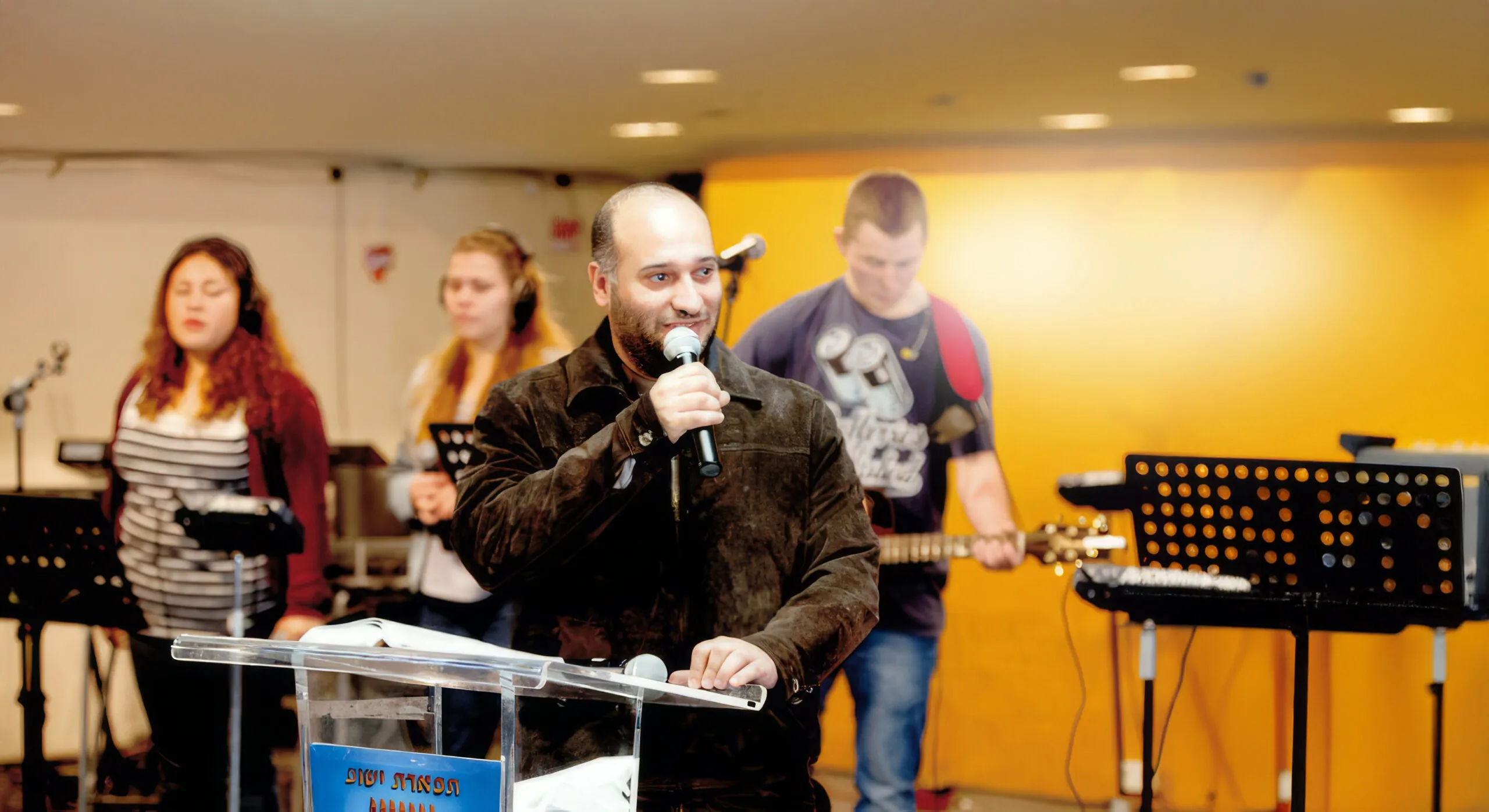
Israel’s First Indigenous Pastor?
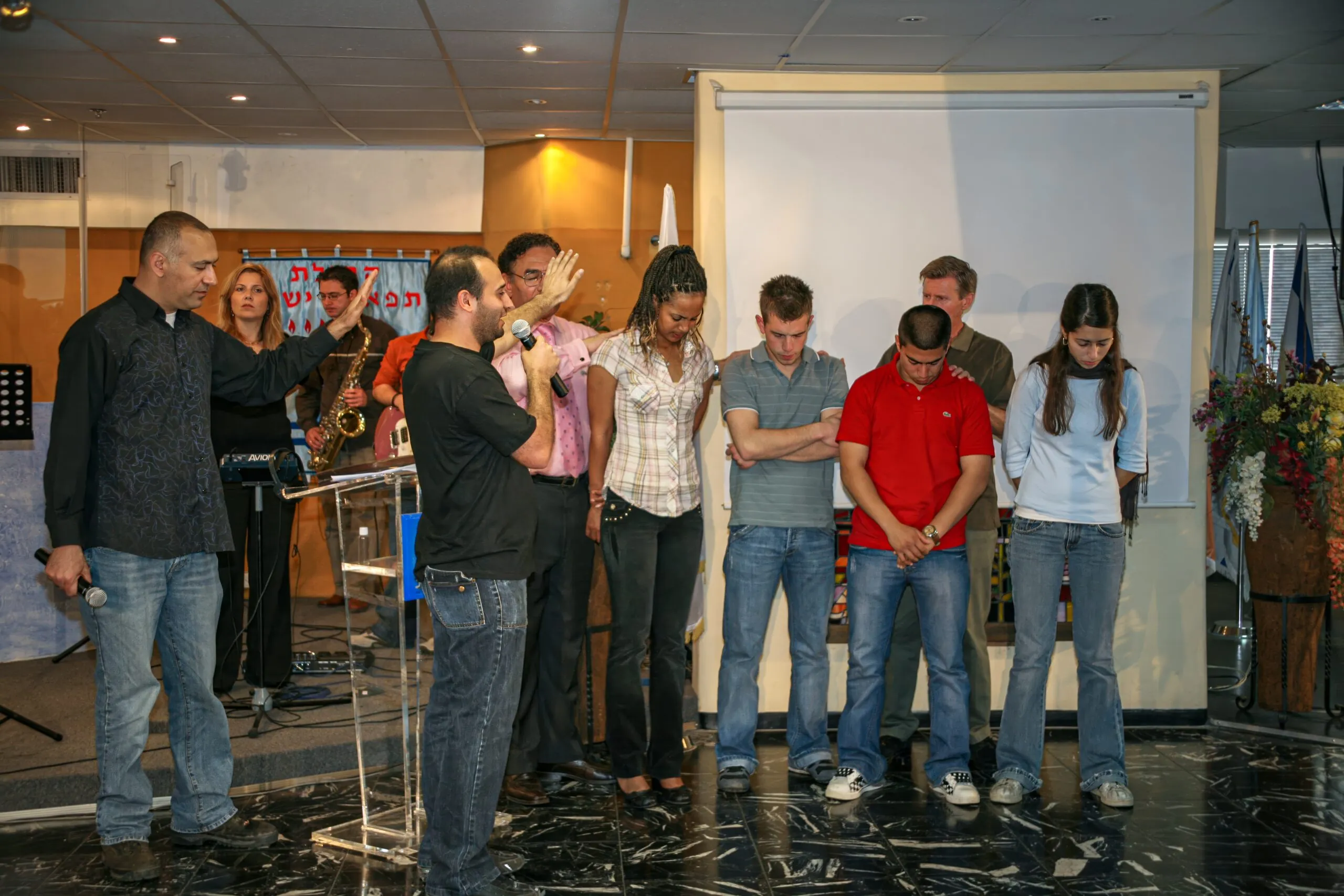
Rooted and Rising in Israel
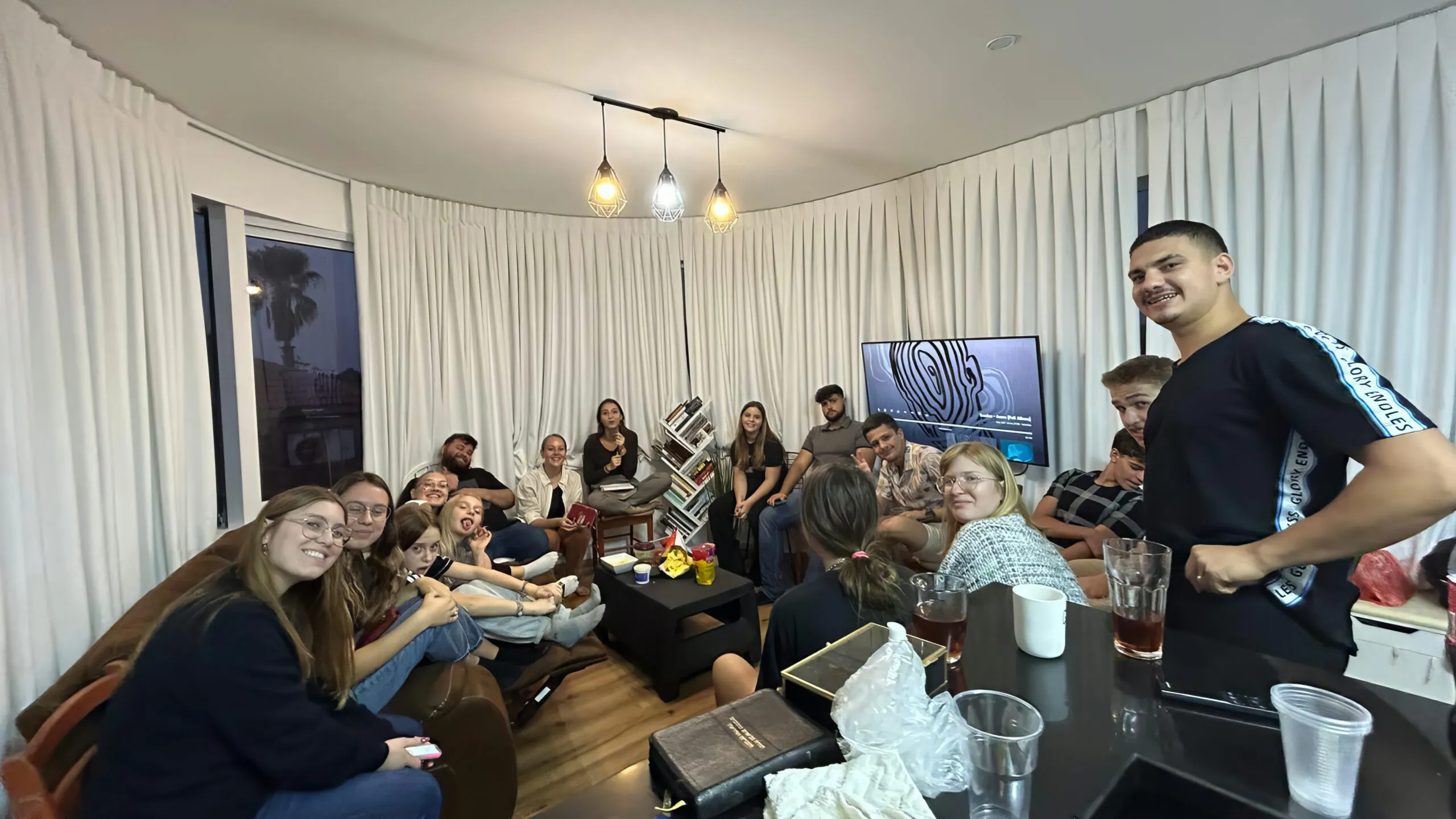
A New Generation Rises

Leaders in the Making
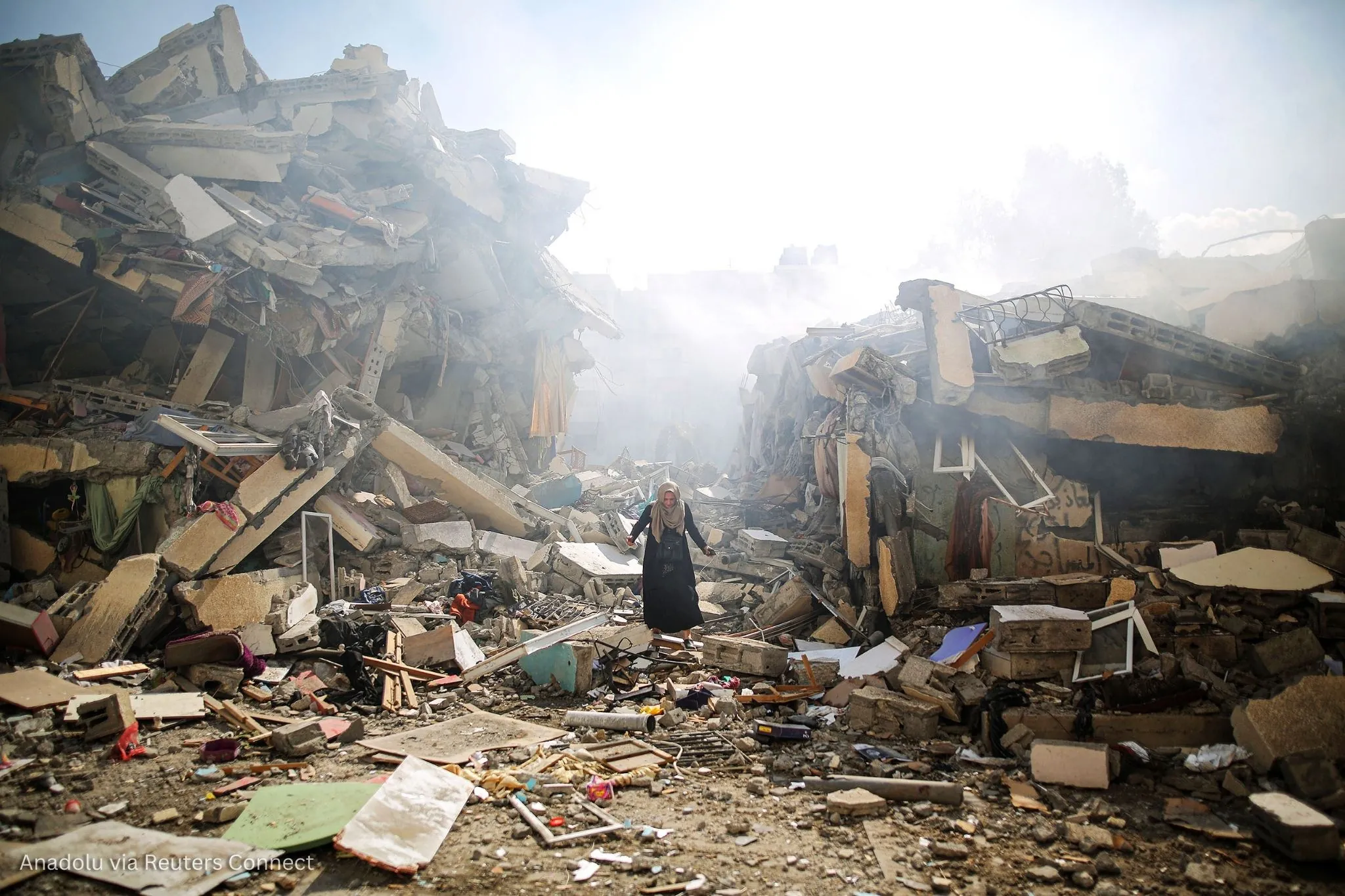
Free Gaza

Bringing Light Beyond Borders

From Crisis to Christ
